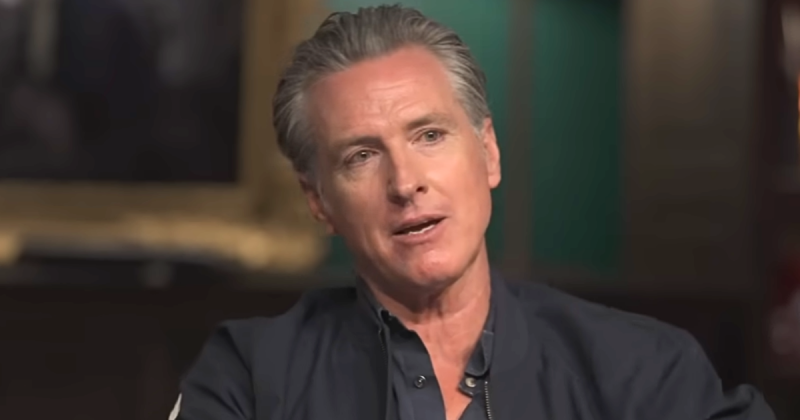California Gov. Gavin Newsom’s previous remarks have ignited a heated debate over the state’s approach to homelessness and addiction recovery.
In a statement that has drawn both support and criticism, Newsom declared, “Clean and sober is one of the biggest damn mistakes this country’s ever made.” emphasizing his belief that strict sobriety requirements may not be the solution to the state’s homelessness crisis.
He referenced his own habits, admitting he occasionally “self-medicates” with wine.
These comments, which were made in 2019, have sparked a broader discussion about the effectiveness of traditional rehabilitation methods versus harm-reduction strategies.
While Newsom advocates for a more flexible approach that accommodates individual needs and circumstances, critics argue that such a stance undermines efforts to promote long-term sobriety and stability among the homeless population.
Matthew Barnett, founder of the Dream Center in Los Angeles, has been vocal in his opposition to the governor’s perspective.
Describing Newsom’s statement as “one of the most discouraging statements ever made by our governor,” Barnett emphasizes the importance of structured programs in helping individuals overcome addiction and rebuild their lives.
He criticized Newsom’s approach, calling it a “total slap in the face” to individuals actively working toward recovery.
In an interview with The Blaze, he explained that the governor’s comment reflects a broader cultural pessimism over the past several years.
“We can’t overcome stuff. We can’t win. We can’t fight poverty. We can’t achieve on our own,” Barnett said, adding, “And so we just kind of have to rebuke that message every day by the way that we live.”
Barnett’s organization, the Dream Center, provides a range of services aimed at addressing homelessness and addiction.
These services include transitional housing, addiction recovery programs and job training, all designed to help individuals regain stability and independence.
Barnett’s criticism of Newsom’s approach underscores the ongoing debate between harm-reduction strategies and traditional rehabilitation models in addressing the complex issues of homelessness and addiction.
The debate over Newsom’s comments reflects the broader challenges California faces in addressing its homelessness crisis.
In January 2024, the state reported approximately 187,084 homeless individuals, up from 131,000 in 2018, the year Newsom took office.
This represents a substantial increase, even as California has implemented programs aimed at reducing homelessness.
Newsom has taken a proactive approach in addressing the crisis, including issuing Executive Order N-1-24, which directs state agencies to remove homeless camps on state property.
The order also encourages local governments to adopt similar measures, reflecting the governor’s commitment to decisive action on the issue.
However, the effectiveness of these actions is debated.
Critics argue that while clearing encampments may provide temporary relief, it does not address the underlying causes of homelessness, such as a lack of affordable housing, mental health challenges and substance abuse.
Advocates for a more comprehensive approach emphasize the need for permanent housing solutions, expanded mental health services, and addiction treatment programs.
As California continues to confront its homelessness crisis, the discussion surrounding Newsom’s comments highlights the complexities involved in finding effective solutions.
Balancing the need for immediate action with the necessity of long-term strategies will be crucial in addressing the root causes of homelessness and ensuring that individuals receive the support they need to achieve lasting recovery and stability.
WATCH:

